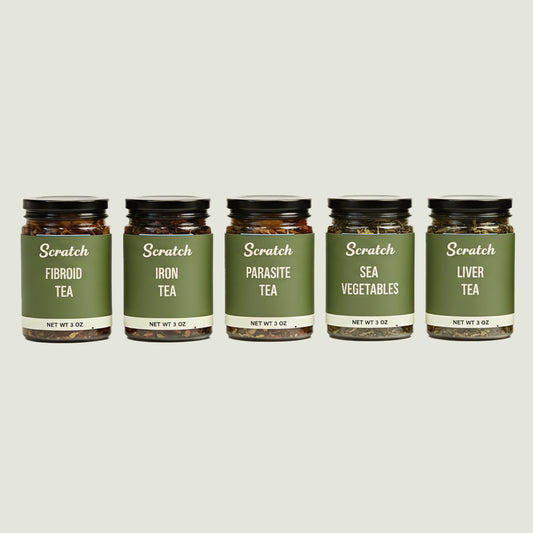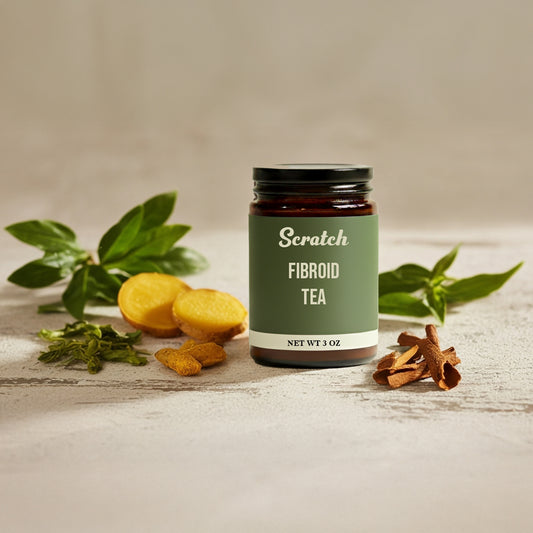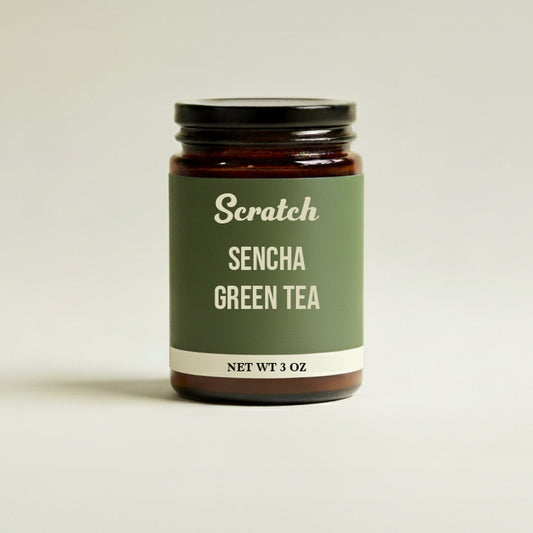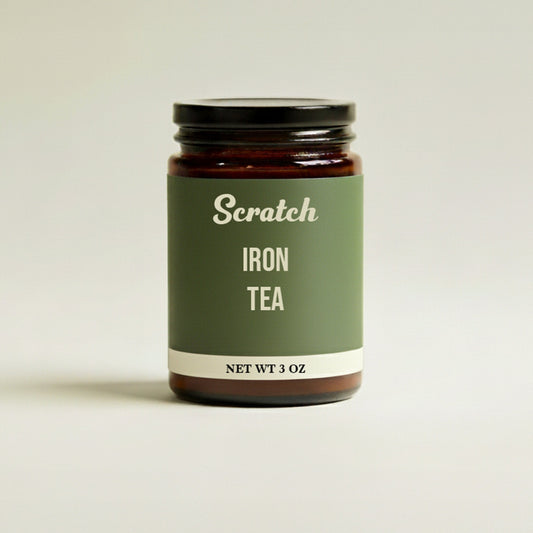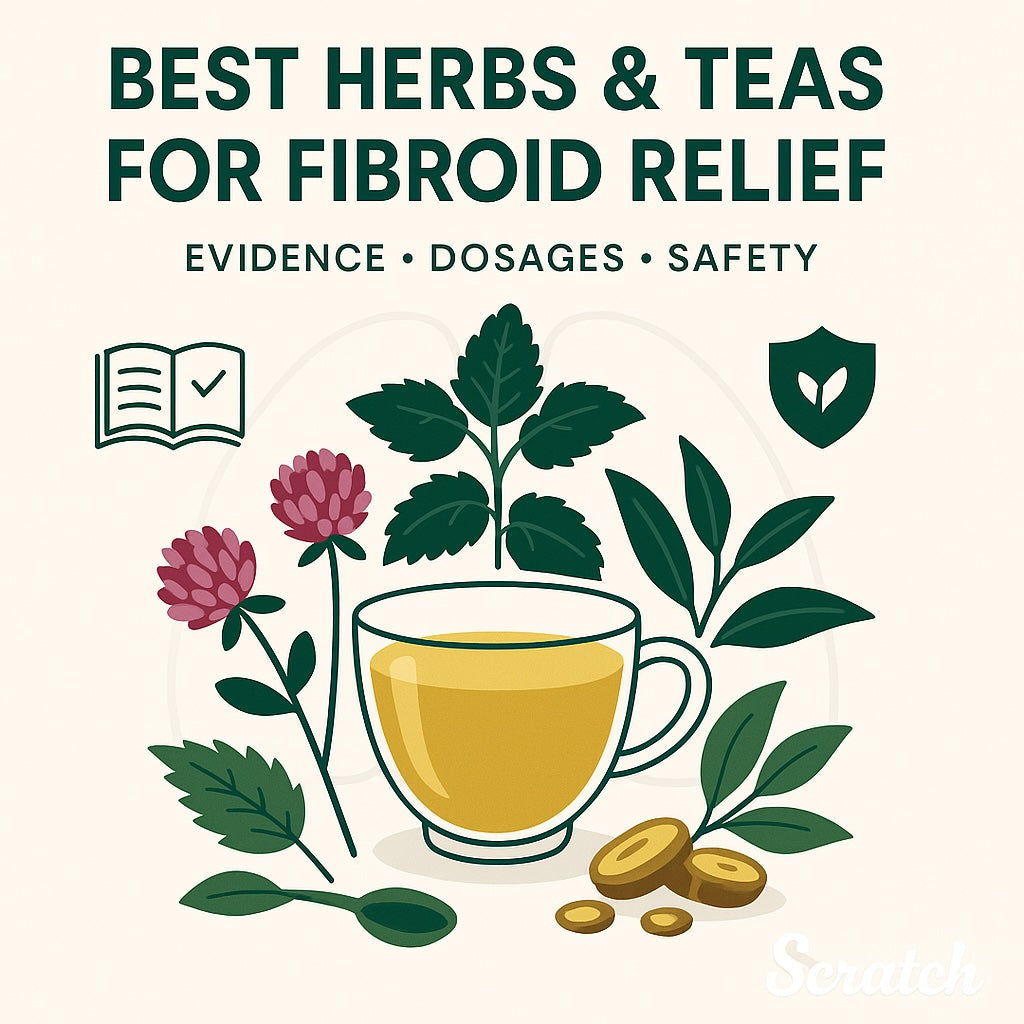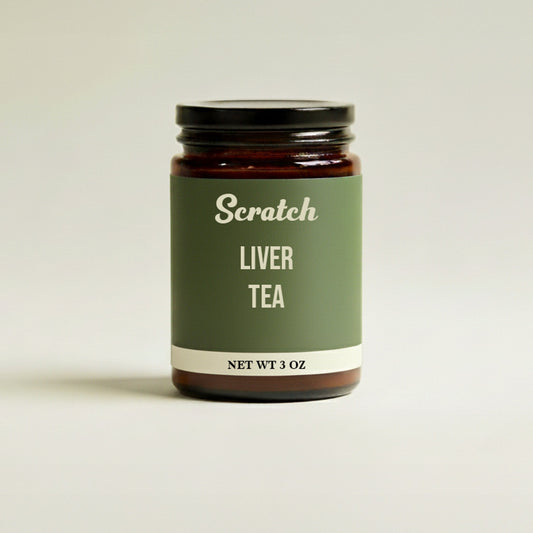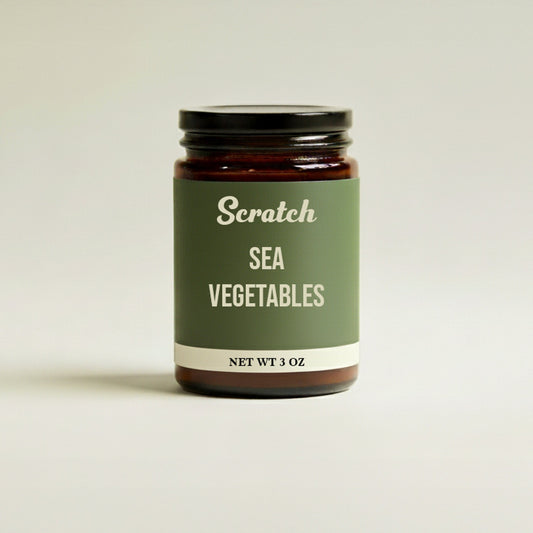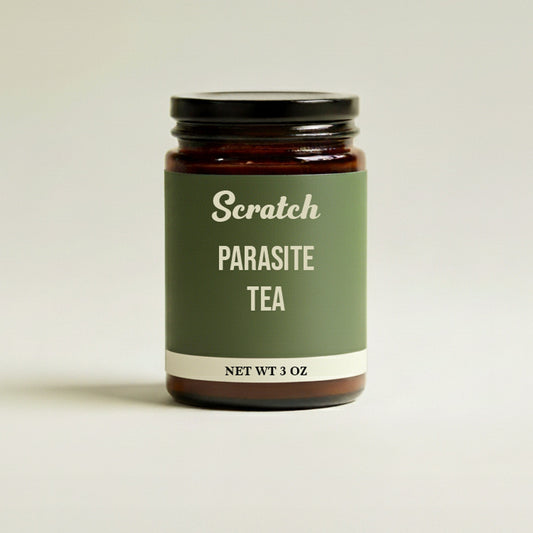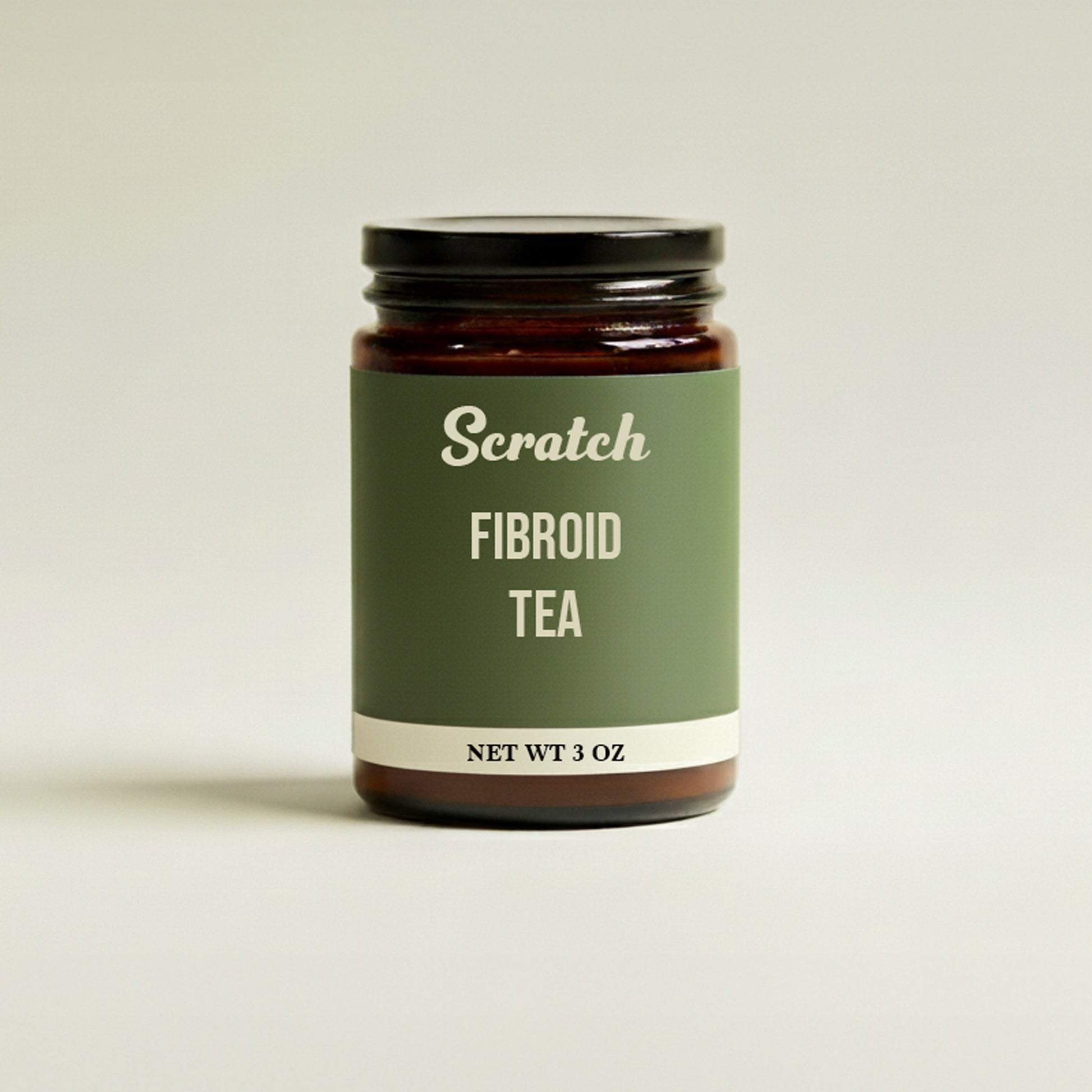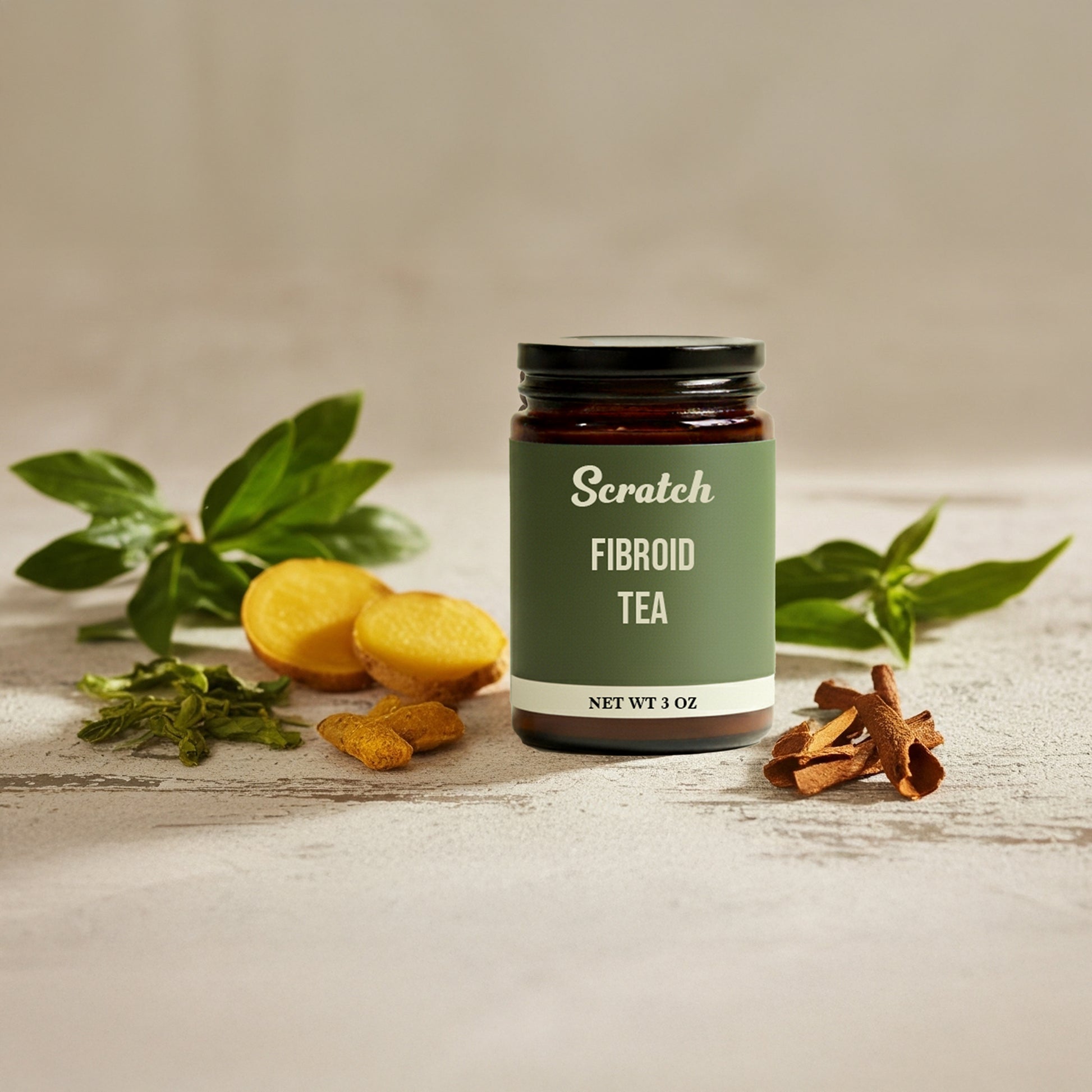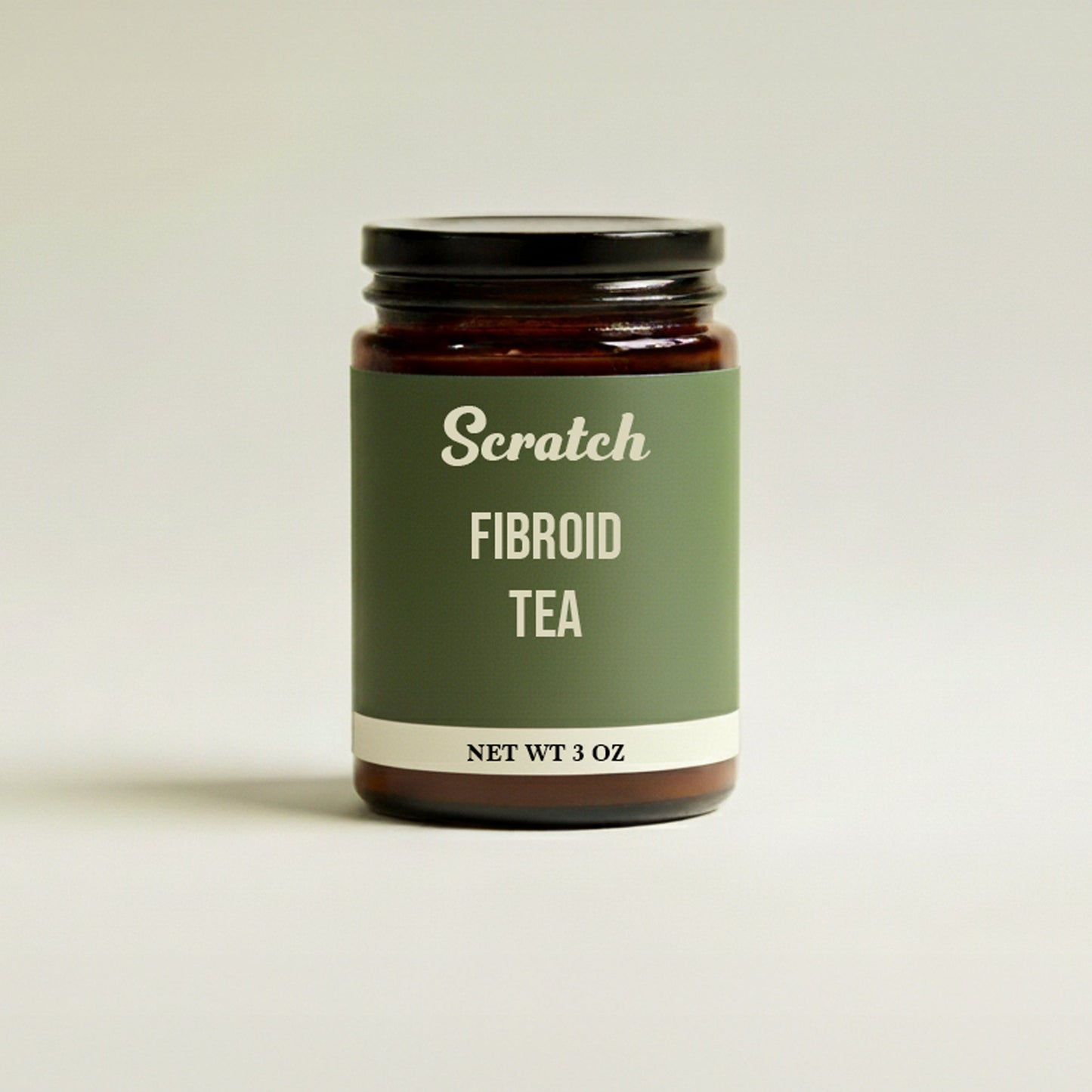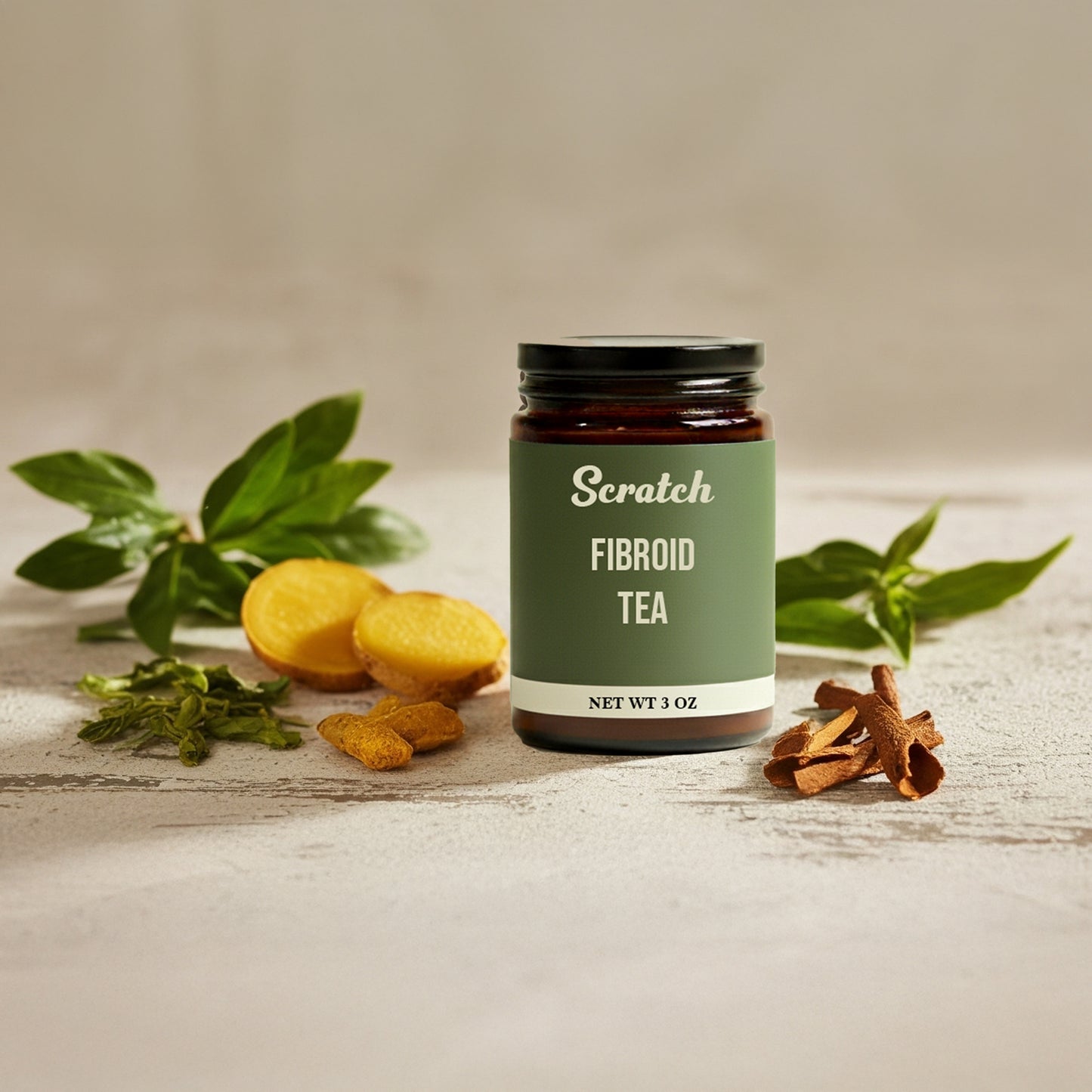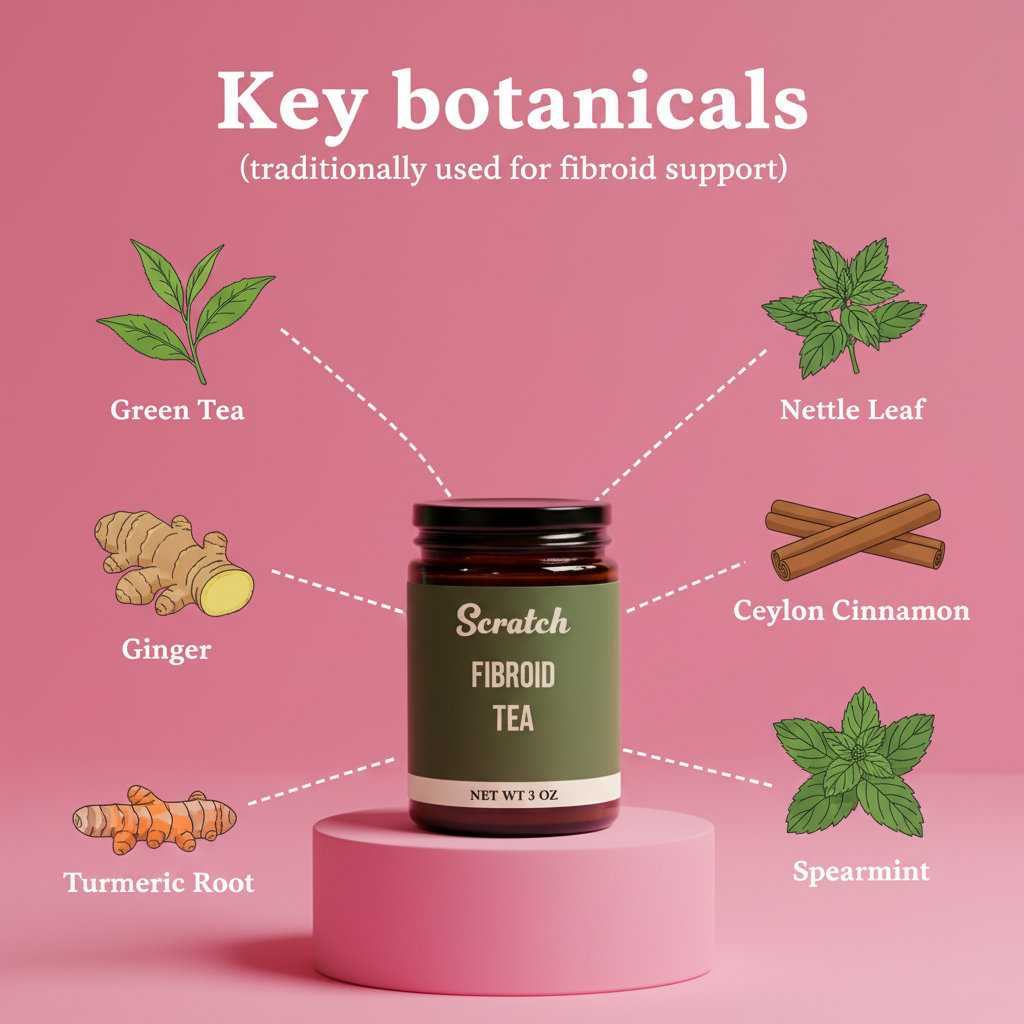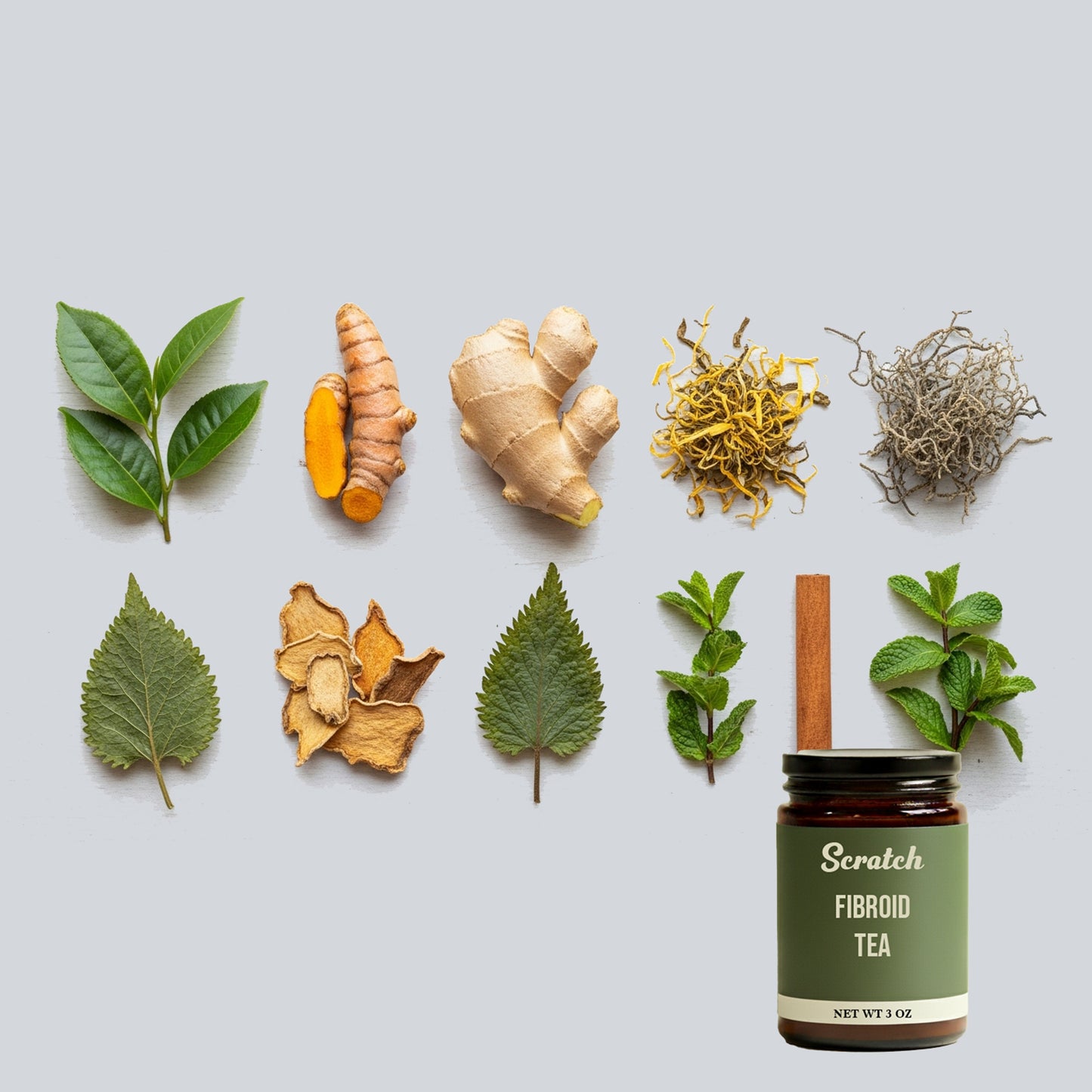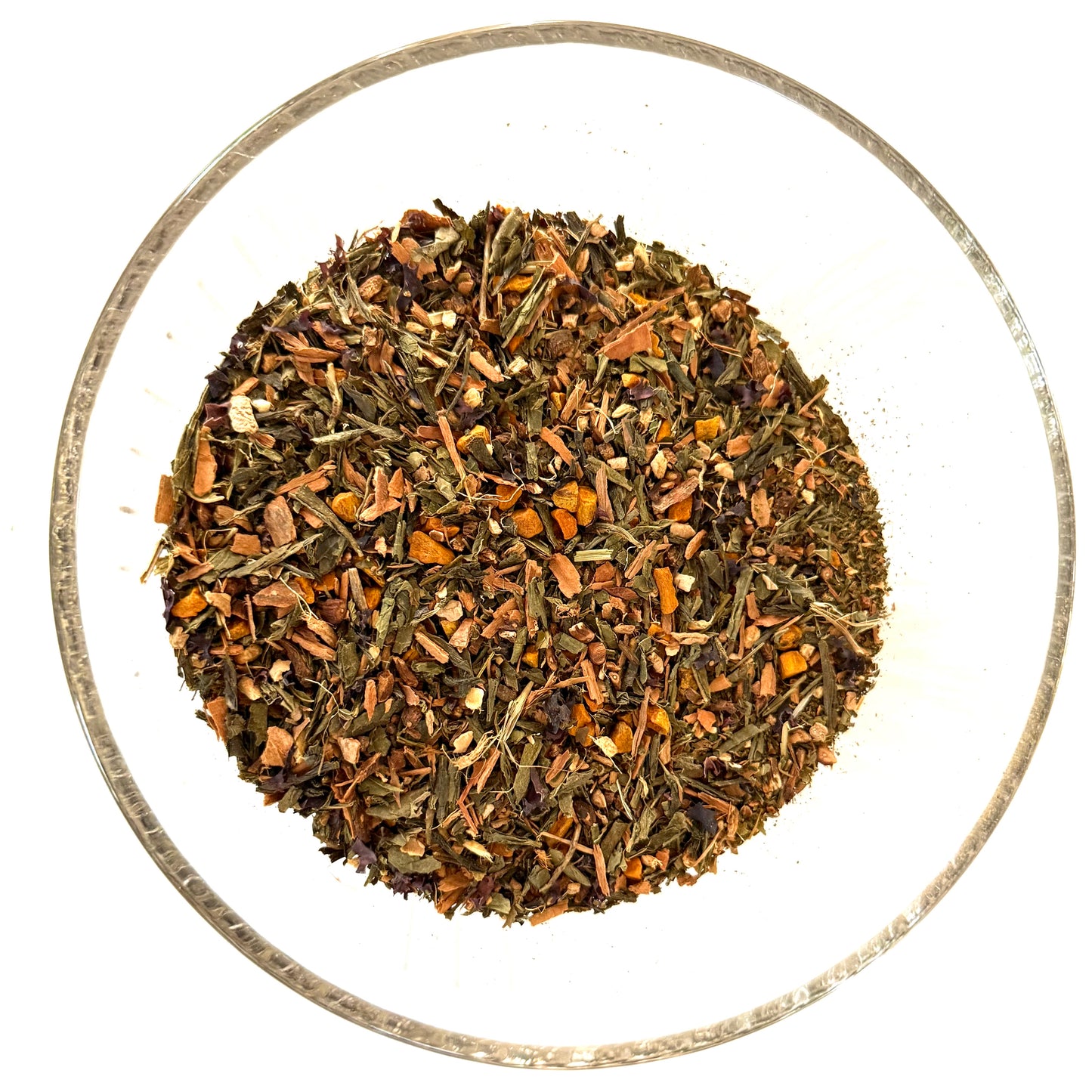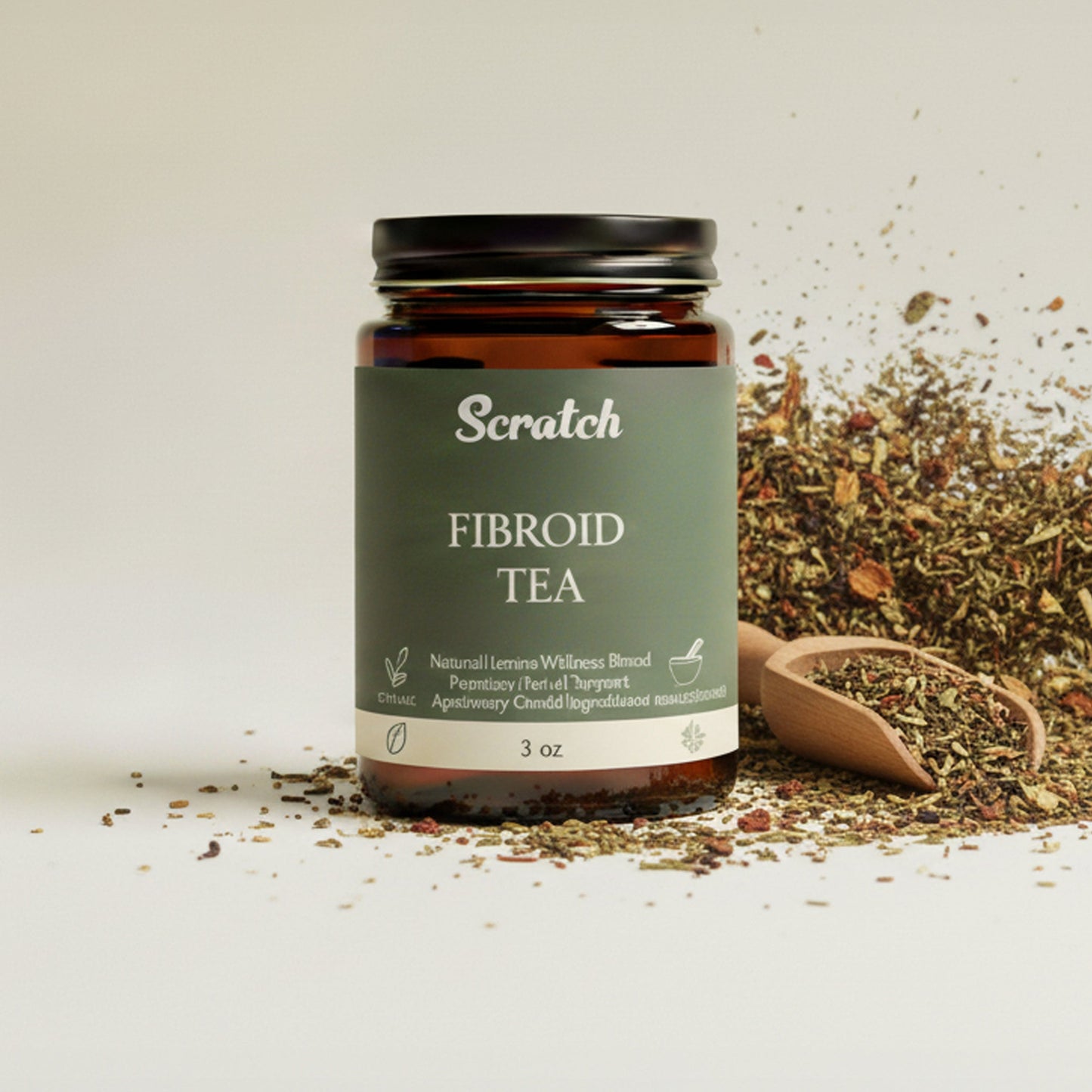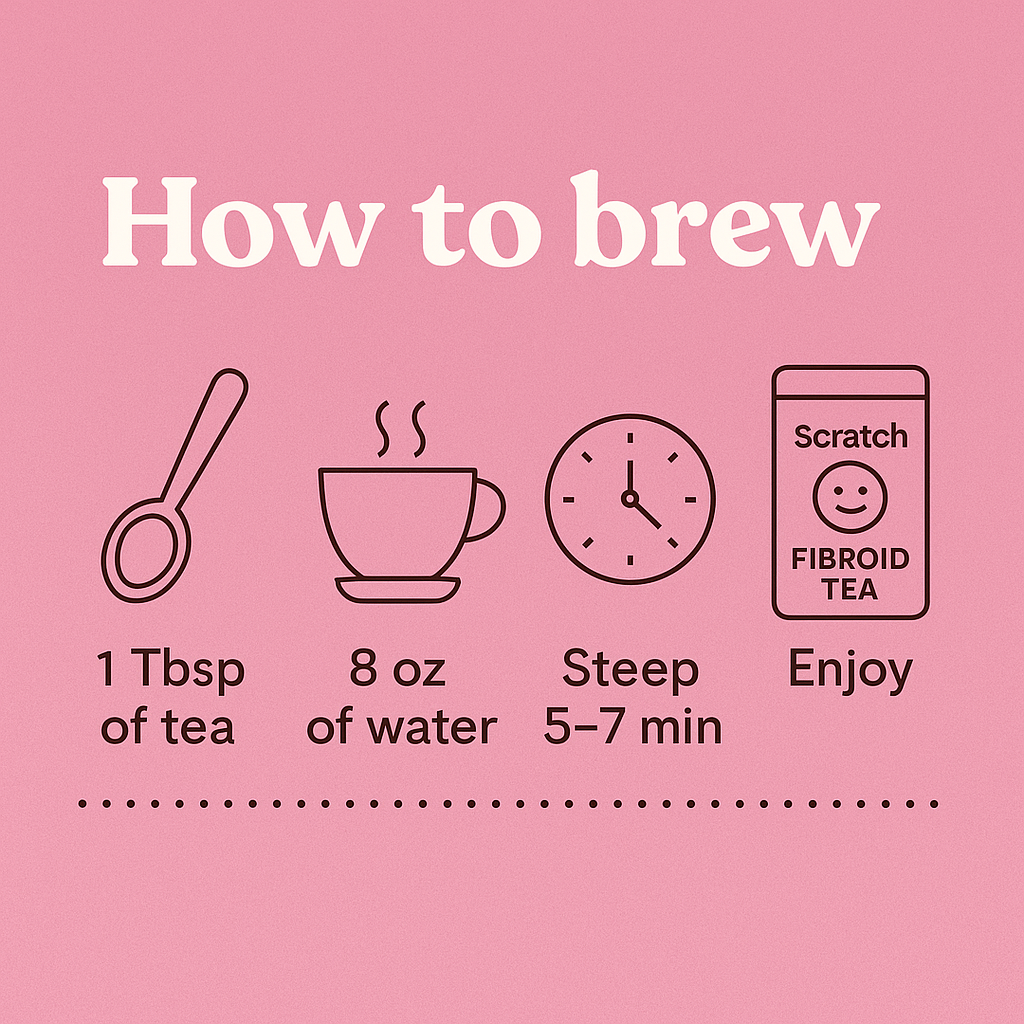The Bottom Line: A Quick Summary
-
The Strongest Evidence: The only herb with strong clinical trial data showing a reduction in fibroid size and symptoms is Green Tea Extract (EGCG). This is the most compelling natural ingredient currently supported by science.
-
For Symptom Relief: Herbs like Turmeric and Ginger are backed by evidence for their powerful anti-inflammatory and antispasmodic properties, making them excellent choices for managing the pain and cramping associated with fibroids.
-
For Hormone Balance: Supporting your liver's ability to metabolize hormones is key. Dandelion Root is traditionally used and respected for its liver-protective qualities, making it a logical addition to a holistic wellness plan.
-
To Fight Fatigue: Heavy bleeding often leads to iron-deficiency anemia, causing extreme exhaustion. Replenishing your Iron stores through diet and gentle supplements is critical for regaining your energy, though it does not treat the fibroids themselves.
-
CRITICAL TO AVOID: Many helpful and popular "women's teas" contain herbs like Raspberry Leaf and chasteberry (vitex), which are valuable in many areas, but medical sources warn can act like estrogen and may worsen hormone-sensitive conditions like fibroids. Always check the ingredient list.
Always involve your doctor or a qualified healthcare clinician for diagnosis and treatment decisions. For more background on what fibroids are and the standard options for care, see the official overviews from the American College of Obstetricians and Gynecologists (ACOG) and the National Institutes of Health (NIH).
What fibroids are and where herbs may fit
Uterine fibroids (leiomyomas) are benign smooth-muscle tumors of the uterus. They’re common, estrogen- and progesterone-responsive, and can cause heavy menstrual bleeding, pelvic pressure/pain, bloating, urinary frequency, and anemia. Conventional options range from watchful waiting to medications, uterine fibroid embolization (UFE), myomectomy, and hysterectomy depending on your goals and symptoms.
Where botanicals may help:
- Reduce symptom burden (bleeding, cramps, cycle irregularities)
- Support quality of life (energy, mood, sleep)
- Complement lifestyle changes (nutrition, stress, iron repletion)
- Possibly reduce fibroid size (EGCG specifically)
Herbs are adjuncts, not replacements, for medical care—especially if you have severe bleeding, anemia, rapid growth, or are considering pregnancy.
What Actually Works
Living with uterine fibroids can feel like a lonely and frustrating journey. Between the debilitating symptoms—heavy bleeding, constant bloating, painful cramps—and the often-limited options offered by conventional medicine, it’s easy to feel hopeless. Many women, understandably, turn to the world of natural medicine, searching for herbs and teas that can offer relief.
But the internet is a minefield of misinformation. Many popular "women's wellness" teas contain ingredients that, according to medical sources, could actually make fibroids worse.
This guide is different. We are cutting through the noise to bring you a clear, evidence-based look at the herbs that are actually supported by science. We will only discuss ingredients that have been studied for their potential to help manage fibroid symptoms, with direct links to the research and reputable sources like the National Institutes of Health (NIH) so you can feel confident in your choices.
Green Tea (EGCG) - the standout
If there is one botanical that stands above all others in the scientific literature for fibroid management, it is Green Tea (Camellia sinensis), specifically its most powerful active compound, Epigallocatechin gallate (EGCG).
The evidence is not just anecdotal; it's clinical. A landmark randomized controlled trial published in the International Journal of Women's Health gave women with symptomatic fibroids a daily green tea extract. After just four months, the results were stunning:
- The women taking the green tea extract saw their total fibroid volume shrink by an average of 32.6%.
- In contrast, the placebo group saw their fibroids grow by 24.3%.
The women in the treatment group also reported a significant reduction in symptom severity and a major improvement in their quality of life. The research is so compelling that the NIH is now funding a large-scale clinical trial to further investigate EGCG as a primary, non-surgical treatment for fibroids.
How it works: Research from institutions like Johns Hopkins has shown that EGCG works by inhibiting the growth of fibroid cells and cutting off the pathways that allow them to build the fibrous tissue that gives them their structure.
Fighting Fatigue: The Critical Role of Iron
One of the most debilitating consequences of fibroids isn't the growth itself, but the chronic, heavy menstrual bleeding it causes. As explained by the Mayo Clinic, this significant blood loss can easily lead to iron-deficiency anemia.
This is the "why" behind the profound exhaustion, the weakness, the brain fog, and the shortness of breath that so many women with fibroids experience. Your body simply doesn't have enough iron to make the healthy red blood cells needed to carry oxygen.
Replenishing your iron stores is absolutely crucial for regaining your energy and vitality. Focus on incorporating iron-rich foods into your diet, such as leafy greens, lentils, beans, and clean sources of protein.
For many women with ongoing heavy bleeding, diet alone isn't enough to catch up. This is where a high-quality, gentle supplement can be a game-changer. Our Natural Iron Tea was formulated specifically for this reason—to provide a plant-based, non-constipating source of iron to help you rebuild your energy stores and fight back against anemia.
Sea Moss & Bladderwrack (Mineral-Rich Seaweeds)
Sea moss and bladderwrack provide iodine and trace minerals that can support overall nutrition on plant-based plans. However, iodine content varies widely in seaweeds and can affect the thyroid—especially in people with existing thyroid disorders. Keep intake moderate and consistent; discuss with your clinician if you have a thyroid condition.
Scratch product fit:
- We leverage sea moss/bladderwrack in select formulas for mineral repletion (not as anti-fibroid agents) while emphasizing reasonable iodine exposure and monitoring as needed.
The Supportive Blend: Herbs for Symptom Relief
While EGCG addresses the fibroids themselves, a holistic approach also requires managing the debilitating daily symptoms. The following herbs are backed by evidence for providing comfort and support.
Herbs Inflammation and Pain Relief:
Inflammation is a key driver of the pelvic pain and pressure associated with fibroids.
- Turmeric (Curcuma longa): The active compound, curcumin, is one of the most powerful natural anti-inflammatories ever discovered. While human trials on fibroids are still emerging, preclinical studies suggest curcumin can inhibit the proliferation of fibroid cells. Its primary role in a blend is to help manage the inflammatory response that causes pain.
- Ginger (Zingiber officinale): A true hero for menstrual health. As noted by Mount Sinai Health System, ginger is a natural antispasmodic, meaning it can help reduce the uterine muscle spasms that cause painful cramping. Its anti-inflammatory properties provide an extra layer of relief.
For Liver Support & Hormone Balance:
Your liver is your body's primary hormone filter. It's responsible for clearing out excess estrogen, which is known to fuel fibroid growth. Supporting your liver is a foundational part of achieving hormonal balance.
- Dandelion Root (Taraxacum officinale): This common "weed" is a celebrated liver tonic in traditional medicine. It also functions as a gentle, natural diuretic, which can provide significant relief from the bloating and feeling of abdominal fullness that fibroids often cause.
What to AVOID: The "Healthy" Herbs That Can Make Fibroids Worse
This is the most critical information in this guide. Many popular women's health teas contain ingredients with known or suspected estrogenic properties. Since fibroids are estrogen-dependent, consuming these herbs can be like pouring gasoline on a fire.
Your attached research report and public health advisories are clear. A scientifically sound formulation must exclude the following:
- Raspberry Leaf: This is the most concerning. While popular for general menstrual support, medical sources like WebMD explicitly warn that it can have an estrogen-like effect and is not recommended for hormone-sensitive conditions like uterine fibroids.
- Hibiscus, Maca, and Thyme: All of these have been found in various studies to contain phytoestrogens or to potentially act like estrogen in the body, making them unsuitable for women actively trying to manage fibroids.
What we leave out is just as important as what we put in. A truly supportive blend must be free from any ingredient that could potentially fuel the problem you're trying to solve.
A Safe, Science-Backed Path Forward
Navigating the world of herbal medicine can be overwhelming. You deserve a solution that is both safe and effective, backed by real science.
Our Fibroid Wellness Collection and Fibroid Tea were formulated with this exact research in mind.
We built our blend around the clinical cornerstone of Green Tea (EGCG) and enhanced it with the supportive, symptom-relieving power of Turmeric, Ginger, and Dandelion Root.
Most importantly, our products are proudly free from Raspberry Leaf, Hibiscus, and other potentially estrogenic herbs. We created the trustworthy, scientifically sound solution we knew women were searching for.
If you are ready to take a proactive step in your wellness journey with a product that is grounded in science, we invite you to explore our collection.
--> Discover the Science-Backed Fibroid Wellness Collection
Lifestyle Changes Needed
- Plant-based, high-fiber meals; daily movement; stress reduction; sleep regularity
- Track symptoms and cycles in a journal (bleeding, pain, energy, mood)
FAQs
Do herbs really shrink fibroids?
Only EGCG has human randomized trial data suggesting reduction in fibroid volume over ~4 months. Most other herbs help symptoms or general wellness rather than shrinking fibroids.
How long until I notice changes?
In the EGCG trial, symptom improvements tracked with the 4-month course.
Can I take these if I’m trying to conceive?
Discuss with your clinician. Some people use EGCG preconception under medical guidance (a U.S. multicenter trial is underway for women with fibroids and unexplained infertility), but safety and timing around ovulation/early pregnancy should be individualized.
References
- Roshdy E. et al. Int J Women’s Health (2013): Green tea extract (EGCG) reduced fibroid volume and improved symptoms in a randomized, placebo-controlled trial.
- LiverTox (NIH): Green tea extract, rare hepatotoxicity case reports, safety overview.
- ACOG & NIH/NICHD: Uterine fibroids, patient-oriented overviews and treatment options.
- NIH ODS: Iodine fact sheet, seaweed iodine variability and thyroid effects.
- Artichoke leaf clinical data for digestive support.
Important: This educational article doesn’t diagnose, treat, or replace medical care. Supplements can interact with medicines and conditions so be sure to speak with a licensed medical professional.

